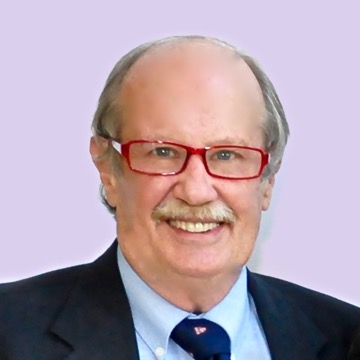DR ROBERT L GROSS MD

Dr Robert Gross is a graduate of Tufts University and Harvard Medical School. Board certified in internal medicine, he has led or partnered in some of the most significant international cancer and nutritional research projects in recent decades.
His work has directly resulted in the establishment of new diagnostic and treatment protocols for various cancers, as well as fetal neurological disorders related to nutritional deficiencies.
Under the auspices of Prof. Paul Newberne in the Department of Nutritional Pathology, Dr. Gross’ work earned him the prestigious Goldberger Fellowship for Internal Nutritional Research from the American Medical Association (AMA). This led to international research projects in both South Africa and Kenya. During his time at King Edward VIII Medical School and The Natal Institute of Immunology in Durban, South Africa, Dr. Gross conducted research that found the critical link between T-cell immune response depression and folic acid deficiency. His further work would find that folic acid deficiency in expectant mothers resulted in a greatly increased risk for central nervous system (CNS) defects in newborns. In both of these cases, the findings would show that immune system depression can be reversed and CNS birth defects prevented with folic acid supplementation.
Working within the World Health Organization Center for Cancer Research in Nairobi, Kenya, his work resulted in developing a bank in which cryogenically-preserved lymphocytes could be stored. This effort revealed that the functional status of T-cells remained intact and returned to full function after cryogenic storage. It was by using this assay that T-cells could be identified and measured infiltrating a tumor mass in Burkitt’s lymphoma, for the first time. His further research would show a direct correlation between T-cell function and the clinical status of Burkitt lymphoma patients.
Upon completion of his international research, Dr. Gross returned to Boston where he performed his residency at Harvard’s New England Deaconess Hospital. While there, he continued to conduct research projects at Harvard Medical School. Using the same T-cell assay from his earlier studies in Africa, Dr. Gross’ work revealed that T-cell counts and functionality were significantly depressed, even in small, localized cancers. The diagnostic protocol developed from this research also was also found to accurately differentiate between malignant and benign tumors, regardless of size, on a chest x-ray. These findings were later published in the New England Journal of Medicine.
Post-residency, Dr. Gross continued his research efforts in the Department of Nutritional Pathology at the Massachusetts Institute of Technology (MIT). His three-year stay resulted in significant findings regarding how nutritional factors relate to immune function, with specific emphasis on chemical carcinogenesis and cancer development. His work at MIT revealed that deficiencies of specific trace minerals such as zinc, copper and selenium profoundly affect the incidence of cancer in specific organs after exposure to carcinogens, such as aflatoxin and nitrosamines. Results showed that this risk could be greatly reduced and immune response strengthened with supplementation.
While at MIT, Dr. Gross received the highly-esteemed Chaim Weizman Fellowship for Biological Research. This would lead to a two-year research tenure at the Los Alamos Scientific Labs in Los Alamos, New Mexico. At this time, his worked focused on cellular atypia and T-cell function in lung cancer patients who had worked in uranium mines. This study became one of the first to conclusively show that immune function impairment in cancer patients begins to decline years before diagnosis. His work would later go on to be used for early diagnosis for patients with lesions of the cervix, mouth, head/neck and colon.
The findings from his work in nutritional research have led to the development of treatment protocols that utilize trace elements as key enzyme co-factors in the healing of topical inflammation. His work in immunology has been integral in the formulation of various neutraceuticals developed to stimulate, normalize and enhance the immune system.
Dr. Gross is the author of many published scientific articles focusing on nutritional carcinogenesis, nutrients and immune function, as well as early cancer detection. He is also co-author on the highly-regarded scientific review, Role of Nutrition in Immunologic Function, available through the U.S. National Library of Medicine and the National Institutes of Health (NIH).
Dr Gross is the patent holder for the original AIDS test, and also holds the patent for a subdermal pain management and inflammation process.